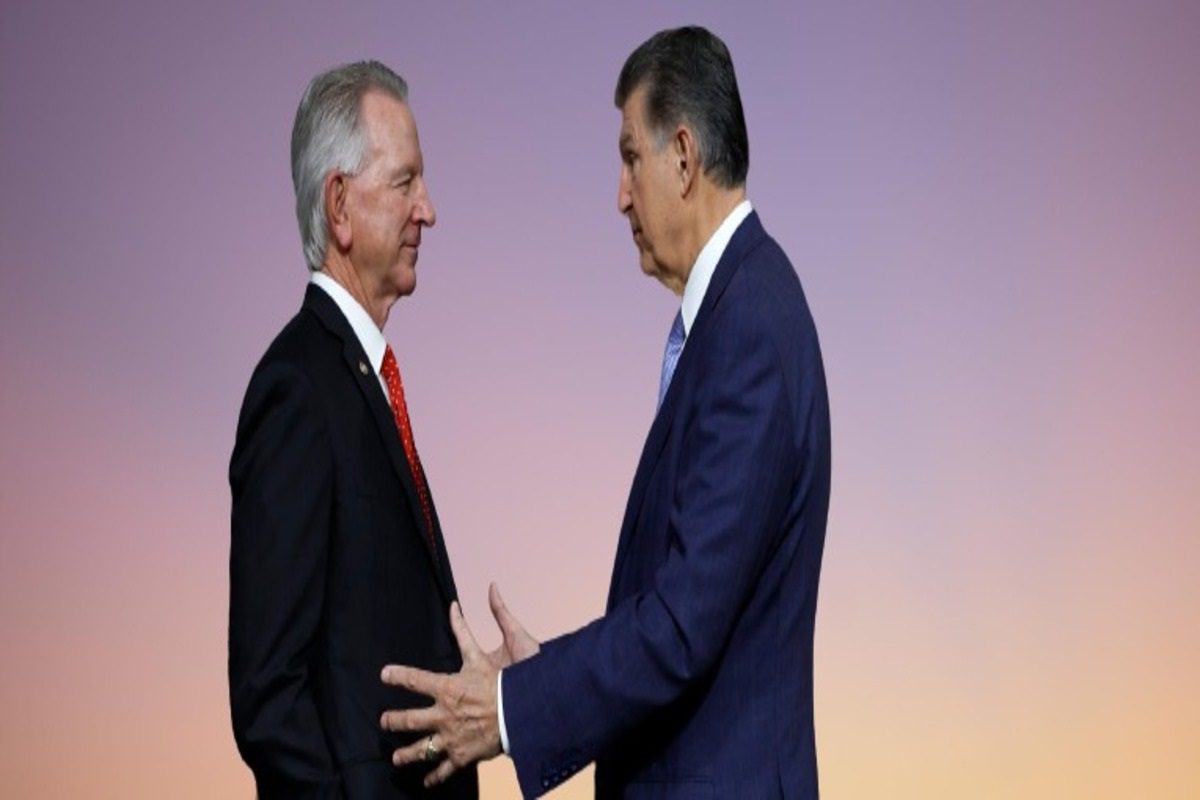College Sports Bills: Congress has enacted many college sports bills recently. This implies that the U.S. government prioritizes NCAA reform and that lawmakers understand collegiate sports issues, which they don’t.
The Galling Proposal: One of government officials’ many stupid ideas is particularly troubling: Senators Joe Manchin (D-W. Va.) and Tommy Tuberville (R-Ala.) added a clause to a name, image, and likeness (NIL) bill. This law makes it harder for athletes to switch colleges in their first three years. It appears to be directed at Tuberville’s former coaching colleagues who gripe about easy transfer rules. Surprisingly, the NCAA could solve this problem without Congress.
Real-World Effects: Removing athletes’ transfer rights now will be unpopular. Administrators and trainers may lament the days when players had to sit out a year after transferring, but the NCAA shouldn’t take away athletes’ rights. Even though the current arrangement is debatable, low-paid sportsmen always had one free transfer chance. Football, men’s and women’s basketball, baseball, and men’s hockey had special rules until 2021. The transfer site gets supporters talking during downtime and helps failing teams improveswiftly.
Chasing Non-Problems: The Manchin/Tuberville idea exemplifies collegiate athletics today: individuals are continually looking for solutions to nonexistent problems. Even if their wages are rising and their product is still popular, conference commissioners and coaches have circulated a “sky is falling” myth and requested Congress to act in recent weeks. College sports officials have repeatedly utilized this tactic to postpone or stop changes to the “amateur model.” They claimed that schools would fail if athletes received Cost of Attendance stipends or were paid. These dire predictions failed, which lowers their credibility.
Five Ideas for a Better Future: Instead of focusing on terrible laws, U.S. Representatives and Senators should consider five ideas to improve student-athlete experiences, engage fans, and safeguard college sports.


READ MORE: SEC demand to Coinbase: SEC Pre-Suit Twist Coinbase Forced to Embrace Bitcoin Only
1. Reforming college football: Given its importance, college football may be better off outside the NCAA. Setting up a distinct organization for the top college football league that isn’t a non-profit and creating marketing links with institutions might lead to unionization, collective bargaining, and income sharing in the future.
2. Revisiting Regional Conferences: Regional conferences, except for football, may create more logical, geographically-based divisions, revive regional rivalries, and make it easier for players and fans to get to games.
3. Spring FBS-FCS games: Replace boring games with thrilling ones. This will keep fans interested during the winter and keep FCS institutions funded.
4. Beware NIL. Realize that NIL rules and letting the system grow are unrealistic. Boosters, corporations, and players will alter, leveling the playing field.
5. Stopping Agent Dominance: Stop agents from dominating teachers, who gain substantial raises for short-term success. Enforceable contracts and antitrust repercussions can correct this mismatch.
Make meaningful reforms to improve college athletics. People still want Congress to get involved, but the focus should be on building a lively, fair, and forward-thinking environment for college players, fans, and college sports.
Also Read: 2023 Women’s World Cup: Intense Battles in Group Stages as Knockout Phase Approaches
Our Reader’s Queries
What are the main expenses in college sports?
The biggest expenses were student aid (19%), coach compensation (15%), facilities (17%), administration compensation (16%), and game and travel costs (11%).
What is the college sports NIL Clearinghouse Act of 2023?
Senator Lindsey Graham (R-SC) has proposed the College Sports NIL Clearinghouse Act of 2023. This act aims to protect athletes from retaliation when they engage in NIL deals. However, NIL deals could still be banned if they go against the school’s code of conduct or a state-wide law.
What is the student athlete Bill of rights?
The rights for gender equity in sports for students are outlined here. Pupils have the right to receive fair and equal treatment, free from any discrimination based on their gender.
What is the Protecting athletes schools and sports Pass Act of 2023?
The PASS Act of 2023, presented by Senators Joe Manchin and Tommy Tuberville, aims to safeguard student-athletes, uphold fair competition and compensation, enhance transparency, and preserve the cherished tradition of college sports.

